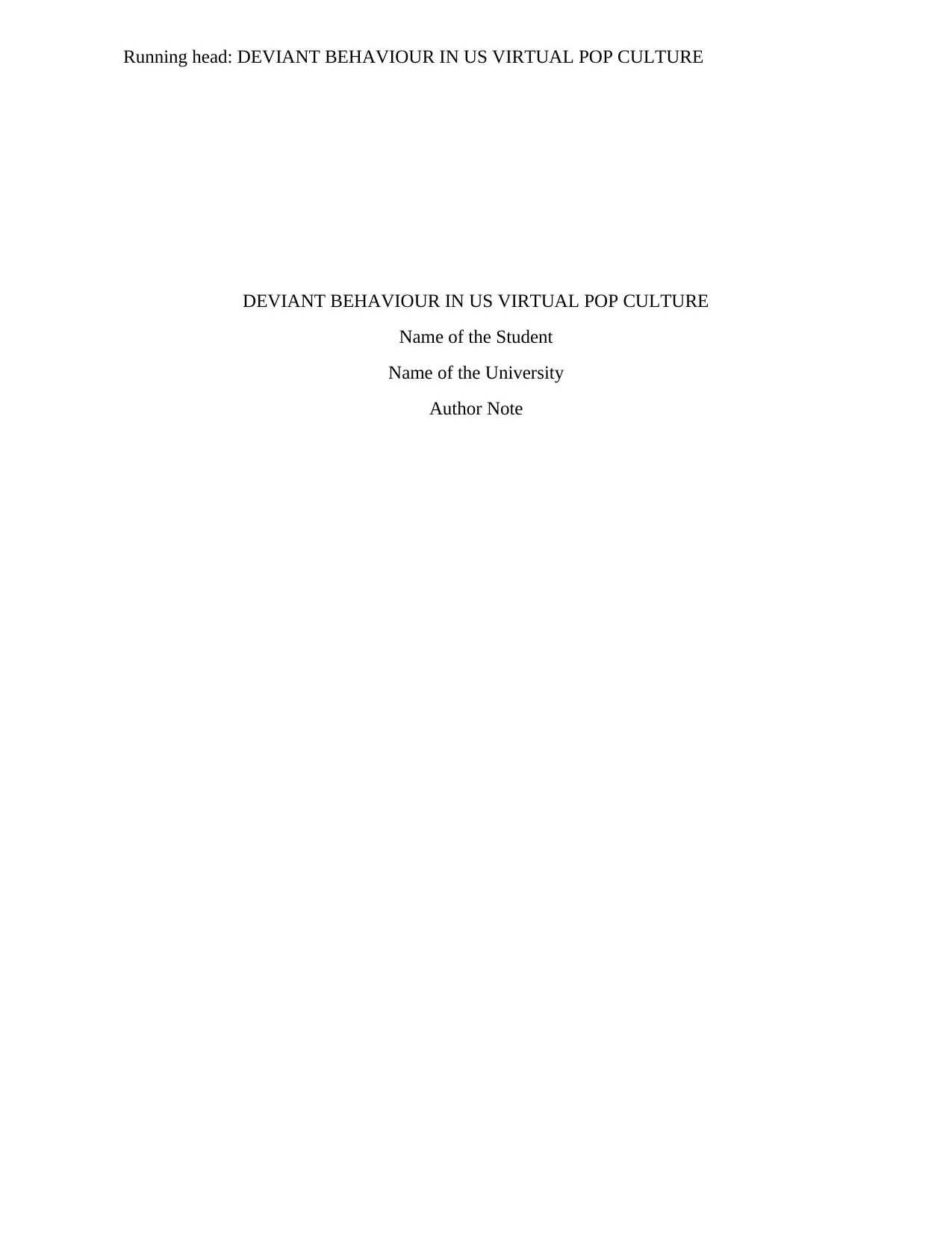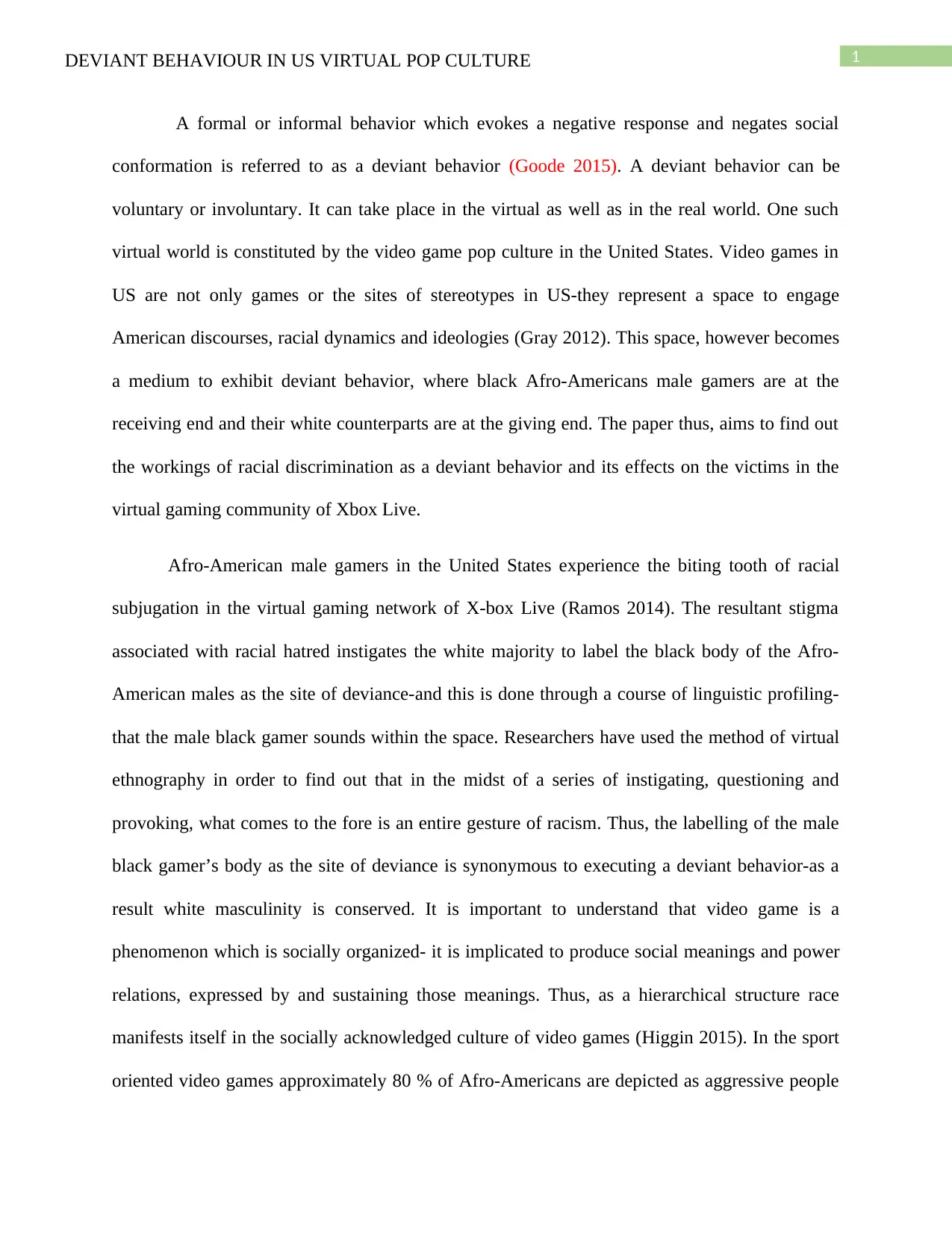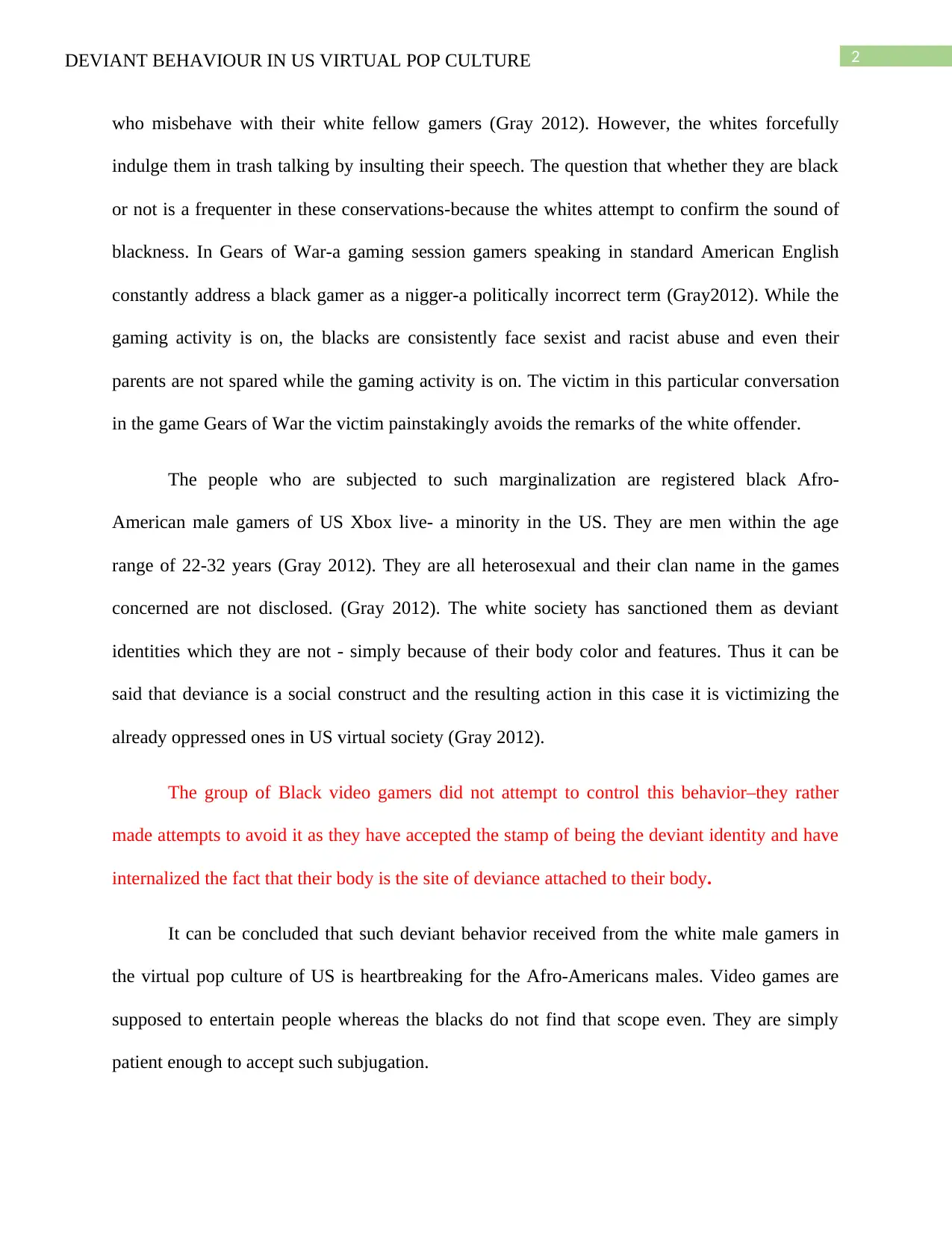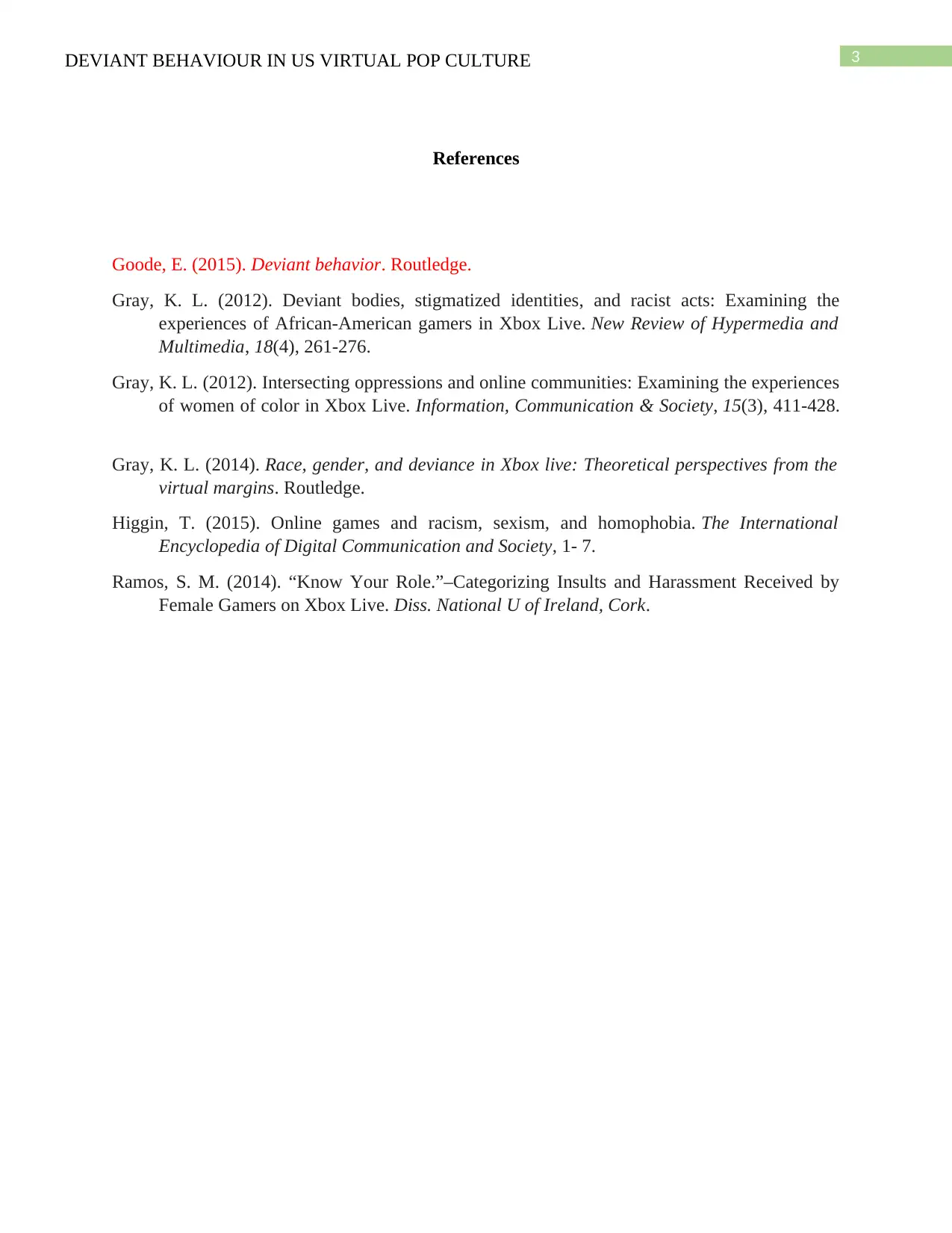Analyzing Deviant Behavior and Racism in US Virtual Pop Culture
VerifiedAdded on 2022/11/16
|4
|963
|231
Essay
AI Summary
This essay delves into the issue of deviant behavior within the context of US virtual pop culture, specifically focusing on racial discrimination experienced by African-American male gamers on Xbox Live. The author examines how video games, rather than being a space for entertainment, become a medium for exhibiting racism, where white gamers engage in linguistic profiling and harassment, labeling black gamers as deviant. The paper highlights the social construction of deviance, the impact of such behavior on the victims, and the ways in which the marginalized group attempts to cope with and avoid the abuse. The essay draws on virtual ethnography and existing research to illustrate the pervasive nature of racial subjugation within the gaming community, emphasizing the emotional toll it takes on the targeted individuals and the need to address such behaviors.
1 out of 4





![[object Object]](/_next/static/media/star-bottom.7253800d.svg)